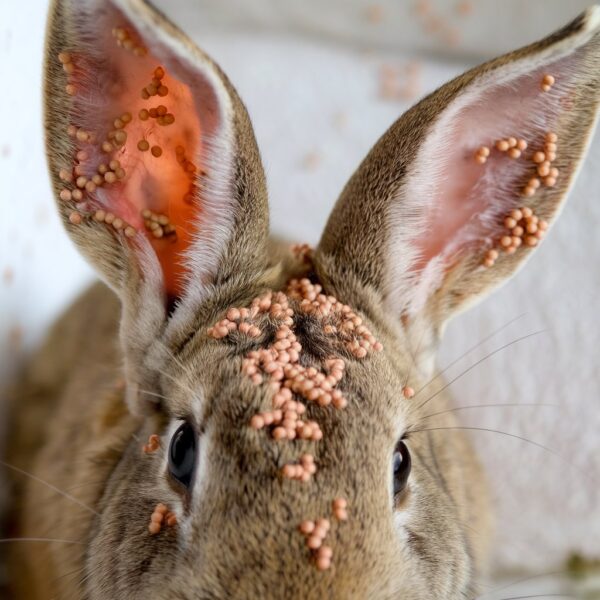Common Rabbit Diseases and How to Prevent Them
Keeping your rabbits healthy is vital for a successful farming business. Understanding common diseases and their prevention can save you time and money. Here’s a guide to common rabbit diseases and how to keep your herd safe:
1. Coccidiosis
- Cause: Parasites in the digestive tract or liver.
- Symptoms: Diarrhea, weight loss, bloating, and lethargy.
- Prevention:
- Keep hutches clean and dry.
- Use clean water and feed.
- Administer preventive medications as advised by a vet.
2. Snuffles
- Cause: Bacterial infection, often Pasteurella.
- Symptoms: Nasal discharge, sneezing, and matted fur on the face.
- Prevention:
- Ensure proper ventilation in rabbit housing.
- Avoid overcrowding.
- Quarantine new rabbits before introducing them to your herd.
3. Ear Mites
- Cause: Parasitic mites in the ear canal.
- Symptoms: Scratching at ears, head shaking, and crusty buildup in the ear.
- Prevention:
- Regularly inspect and clean rabbits’ ears.
- Apply veterinary-recommended mite treatments.
4. Myxomatosis
- Cause: Viral infection spread by fleas and mosquitoes.
- Symptoms: Swelling around eyes and ears, lethargy, and death in severe cases.
- Prevention:
- Vaccinate your rabbits.
- Control fleas and mosquitoes around the farm.
5. Bloat
- Cause: Overeating or eating unsuitable foods.
- Symptoms: Distended abdomen, discomfort, and reduced activity.
- Prevention:
- Provide a balanced diet with plenty of hay.
- Avoid sudden changes in feed.
6. Flystrike
- Cause: Flies laying eggs in rabbits’ fur.
- Symptoms: Open wounds, bad odor, and visible maggots.
- Prevention:
- Keep hutches clean and dry.
- Regularly groom your rabbits, especially in hot weather.
7. Enteritis Complex
- Cause: Bacterial or viral infections in the digestive system.
- Symptoms: Diarrhea, reduced appetite, and weight loss.
- Prevention:
- Maintain strict hygiene.
- Provide fresh water and high-quality feed.
- Limit stress factors like overcrowding.
Final Thoughts: Prevention is better than cure in rabbit farming. Regular health checks and good farm management practices are key. If you suspect a disease, consult a veterinarian immediately. At Tonmerc Bunnies, we’re here to support you with the knowledge and resources needed for a thriving rabbit farm.



